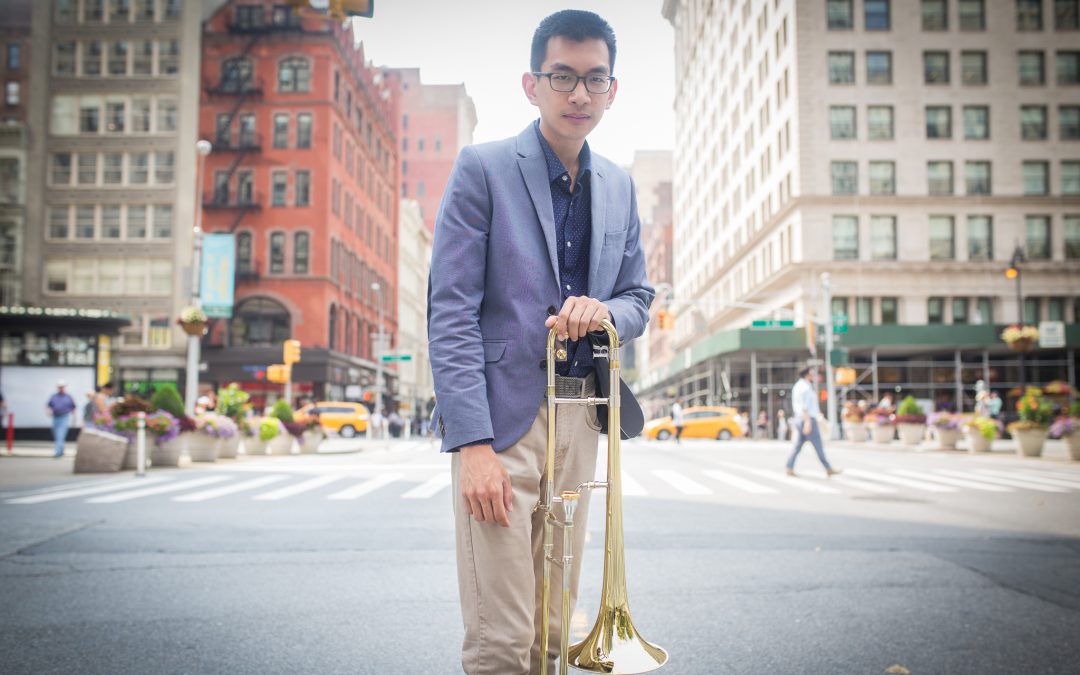Taiwanese American Peter Lin is a jazz trombonist and musician based in New York. Born in Louisiana, the birthplace of jazz, Peter has been described by Downbeat Magazine as “solid, fluid, and smooth”, having performed with world-class jazz artists including Slide Hampton, Steve Davis, Winard Harper, and more. Peter has also performed at festivals including The Clifford Brown Festival and The Brooklyn Hip-Hop Festival, and leads the jazz small group, The Lintet, which is active in the tri-state area.
TAP-NY had the chance to interview Peter about his musical journey after his recent performance at Passport to Taiwan in NYC.
What was your upbringing like, and how did you begin your musical journey?
I would like to think the first year of my life in Baton Rouge, Louisiana pointed me in the direction towards jazz trombone! Similar to maybe other Taiwanese-Americans in the north New Jersey area, my first memory of playing music was learning the Suzuki method for violin around the age of 5 or 6, slowly moving on to piano for a short second, and also singing and playing drums in my Taiwanese church. My parents played classical music on the radio or CD player in the background of my everyday life. Both my grandmother and mother would also play piano in the house. I vividly remember the church gatherings, which included hymns and obnoxious karaoke tracks. Music in my early life represented sophistication and relaxation for my family.
I did not pick up trombone until the fourth grade, when band became part of the curriculum in elementary school. Music education was highly stressed in my school system as well as at home, which in turn led to my involvement in the school band and auditioning for local bands and summer camps. Thanks to some fantastic private trombone teachers, I continued my studies throughout my early years at elementary, middle, and high school. My very first impression of jazz was through the extracurricular jazz band at school, and I immediately fell in love with the genre!
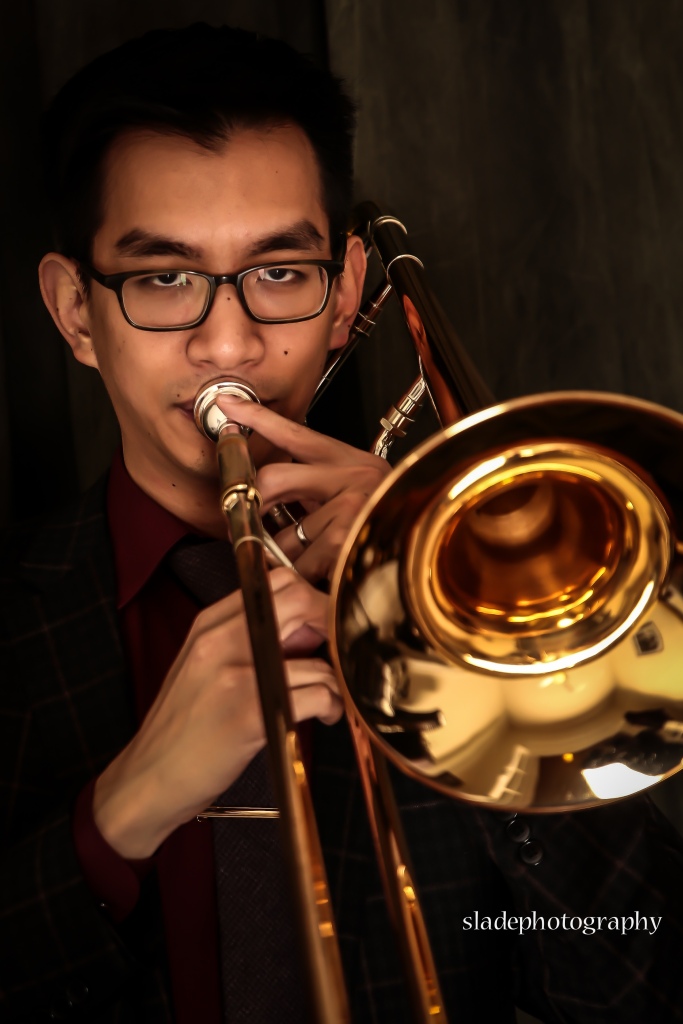
I was quite an eclectic listener at a younger age. If you looked through my playlist in high school, you might find some jazz, metal, J-rock, funk, or electronic music. However, jazz always remained the most interesting for me. I remember the first time I heard jazz artists like John Coltrane, Charlie Parker, Miles Davis, and Art Blakey. I couldn’t believe what I was hearing! Once you catch the bug, you can’t get rid of it!
I eventually decided to pursue music as a career during my sophomore year in high school. After attending William Paterson University (undergraduate) and Rutgers University (graduate) for Jazz Studies, I became a freelancing jazz musician and educator in the NJ/NYC area.
What were the origins of The Lintet? How did you meet each other and decide to form the ensemble?
The Lintet was formed during my studies at William Paterson University (about 6 years ago), when I became ambitious to put myself out there as a leader and also to just find some gigs around town. My band consists of mostly William Paterson graduates I have met through the jazz program, as well as some professionals in the area. Of course, it’s always nice to hire your friends to be a part of your band, as they tend to be more flexible and understanding of your bandleader position, but it’s also good to make sure they enjoy each others’ artistry and vision so we can all support each other on the bandstand.
Jazz is a little bit different in the fact that we don’t intentionally decide to become a “band”. A lot of these aspects of forming a group happens organically over time and is usually organized by the bandleader. Everyone in this ensemble have other commitments with other bands, but I try to keep the members as consistent as possible since they know the music well and have dedicated their efforts towards the group sound.
If you haven’t noticed already, the band name “The Lintet” comes from a combination of my last name “Lin” and my band’s “quintet” size, mimicking Jeremy Lin’s fame in 2012 with “Linsanity”.
How has your cultural identity influenced your music?
Life is music and music is life. How you identify yourself will carry over to your artistic output, regardless if intentional or non-intentional. I like to think that there are conscious and unconscious aspects to my cultural identity that influence my music.
I do identify as Taiwanese-American, so I believe both my Taiwanese and American heritage are equally as important in my musical decisions. Jazz, one of the only American art-forms, is my main focus, but I also acknowledge that my Taiwanese upbringing affects the way I hear music. After all, how can one forget their parents’ karaoke nights or general listening at home? Taiwanese pop music has a great sense of melody that seems to soar above everything else, and I think this aspect influences my own melodic sense when improvising in the jazz context.
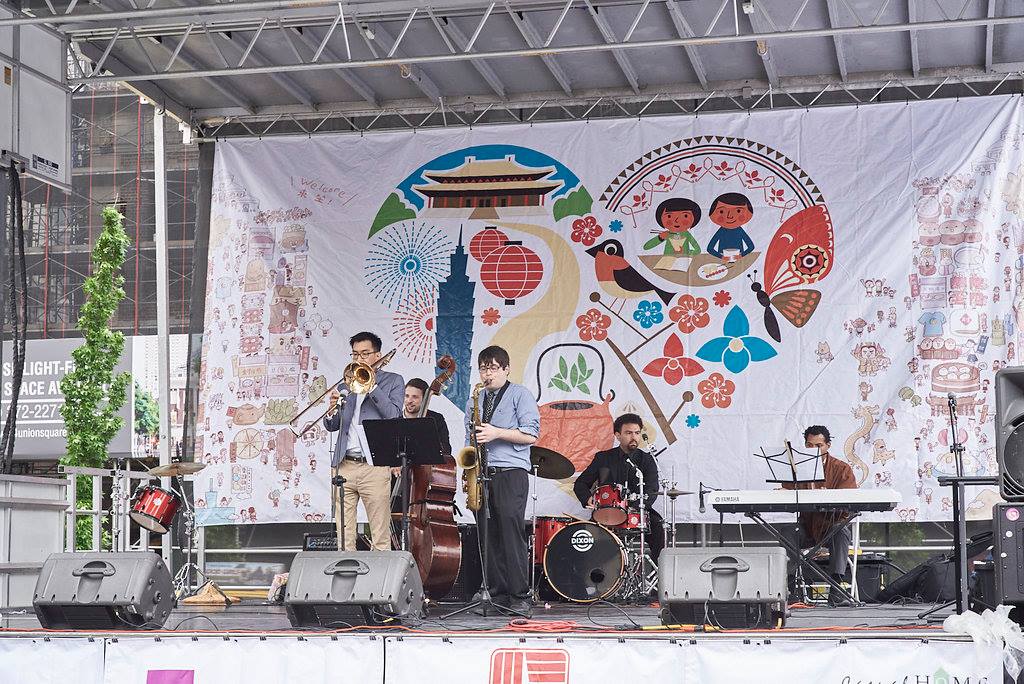
Seeing how minorities just generally have a harder time being accepted in the music business here in America, I definitely practiced my fair share of “rising above the occasion”, which in turn made me try harder to be known in some way or form. I believe the Taiwanese-American community inherently has a drive to be seen in the public eye as equals, and so this motivation allows us to inspire each other in creating some beautiful art.
Can you tell us about your new album “With Respect”?
“With Respect”, released recently on June 22, is my first album as a leader featuring arrangements of Taiwanese & Chinese songs along with an original and a blues by the legendary jazz trombonist Slide Hampton. This is my effort to respect all the different aspects of my life including my heritage, family, close friends, fellow musicians, jazz music, and of course the Taiwanese community.
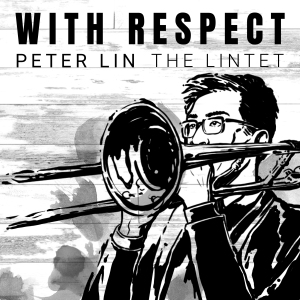
After years of playing at various Taiwanese organizations, The Lintet slowly switched its repertoire from classic jazz standards to my arrangements of popular Taiwanese songs. I’m very proud of this project, as it represents my first attempt at bridging the Taiwanese and jazz community. It also represents all of the great individuals who I have met so far in my career. Kelly Lin, another great Taiwanese artist, created the album cover and helped organize the overall album design. Winard Harper and James Zollar are two, well-established musicians with long careers who are featured on this album. James Cage, a long time friend and colleague, helped mix and master the tracks. To be honest, my wife picked all the tracks, since she knows all the famous Taiwanese & Chinese songs!
From an entrepreneur’s perspective, what’s your day to day like as a freelance musician?
Personally, being a freelance musician has been one of the most rewarding ‘jobs’ I’ve ever had in my life. I think in the Asian-American community, we are often taught to work hard so that we can enjoy life later. However, I find myself waking up and enjoying the work I put into music, even if it can be grueling sometimes. Sometimes, I ‘work’ all week long, with the weekends being my busiest times because that is usually when people want to hear some music!
I always tell people that being a freelance musician in a gig economy is like being an independent contractor in any freelance field. It’s all about the connections you make and taking advantage of any opportunity that comes your way! As they say, “you never know who is listening”. You always have to be on top of your own organization; making sure you are prepared for every single gig, even if you don’t necessarily enjoy the music you are playing. After playing professionally around New Jersey and New York for about 7 years, I can finally say I feel somewhat ‘stable’ with my current income.
You are like a hired mercenary who is ready to “kill it” (that’s a good thing) on the bandstand. I find myself having a different schedule every week and literally just letting my calendar tell me where to go next. It’s very rare you have a set schedule as a freelance musician, unless you are part of the Jazz at Lincoln Center Orchestra and you are paid a certain kind of salary every year.
The jazz scene in New York City is extremely competitive in the fact that there are usually at least 100 other people who are trying to do the same exact thing you are doing and there is only a couple of spots for the job. Most jazz musicians cannot just survive on playing alone. In fact, most teach as a way to supplement their income and to make ends meet. Personally, I know I am an educator, composer, arranger, copyist, manager, contractor, designer, editor, band leader, and performer all at the same time. Every little bit counts in this field.
At the end of the day, you have to treat yourself as a business. There’s obviously a lot of practice time involved with my field (at least a couple of hours a day if you’re lucky), but there’s also the other important aspect of making money. I spend a couple of hours just in front of the computer or on the phone doing business related work.
What are you working on this year that we can look forward to?
Most of my Taiwanese related performances/workshops has passed which included Passport to Taiwan, being a guest speaker at TANG/TACEC & FAPA, and performing at William Paterson University. However, I am planning on having another CD Release in NYC so stay tuned!
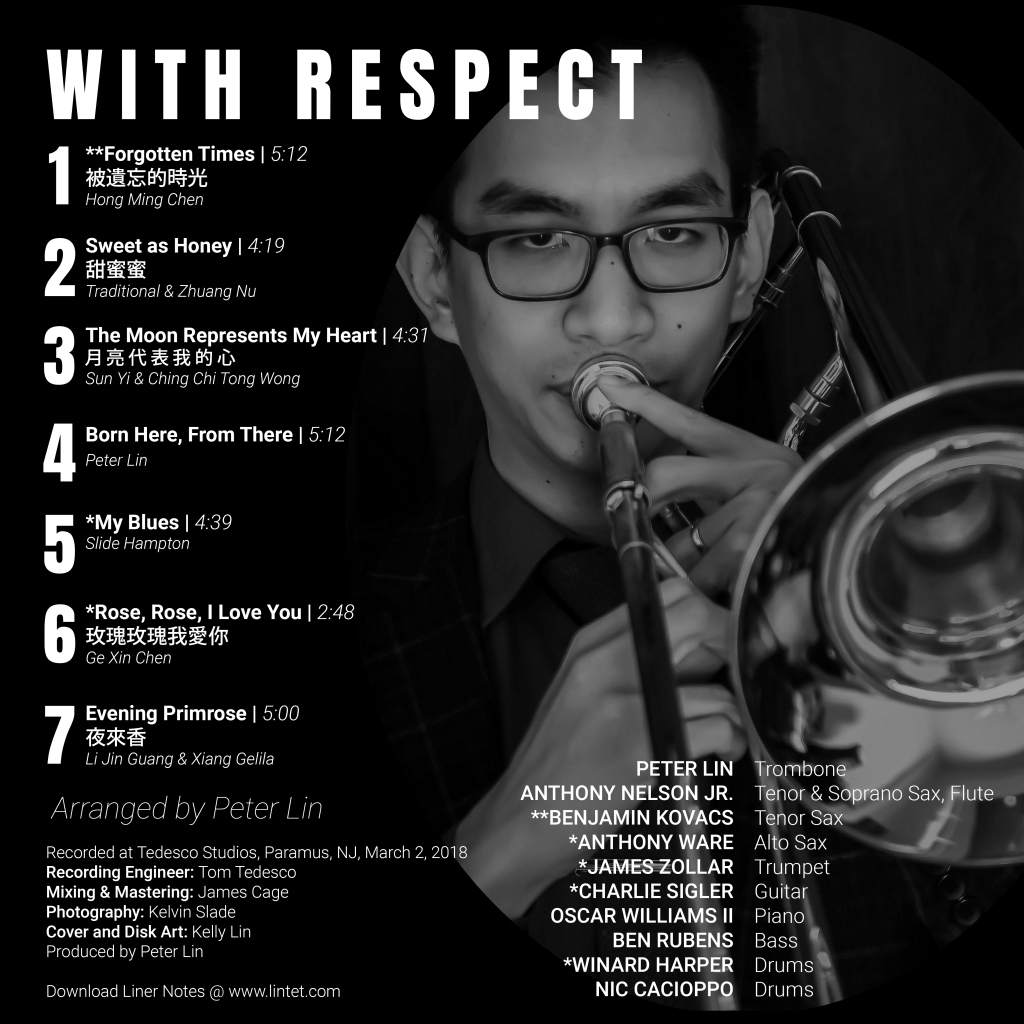
In regards to more of my general jazz gigs, I am performing with my own group at The Wooden Spoon in Bloomfield, NJ on Saturday, July 21. I also run a jam session every other Thursday in Randolph, NJ at the Morris Tap & Grill (next one will be August 2). I also will be part of the Montclair Jazz Festival on August 11.
In addition to my own band, The Lintet, I also help take care of and manage the legendary NEA Jazz Master, Slide Hampton. We have a few gigs coming up including the premiere of the Slide Hampton Big Band at Dizzy’s Club on September 3rd.
I highly suggest following me on social media or my website to keep up with me! I tend to just follow my calendar!

